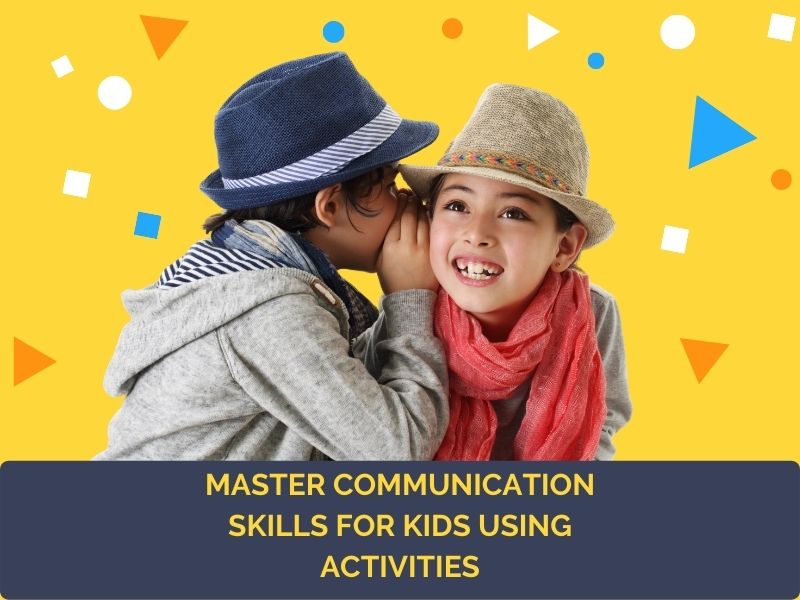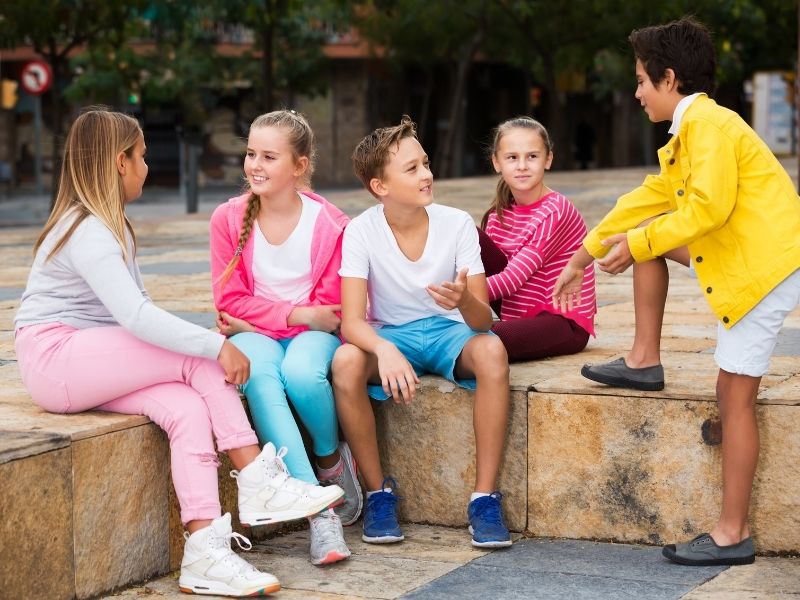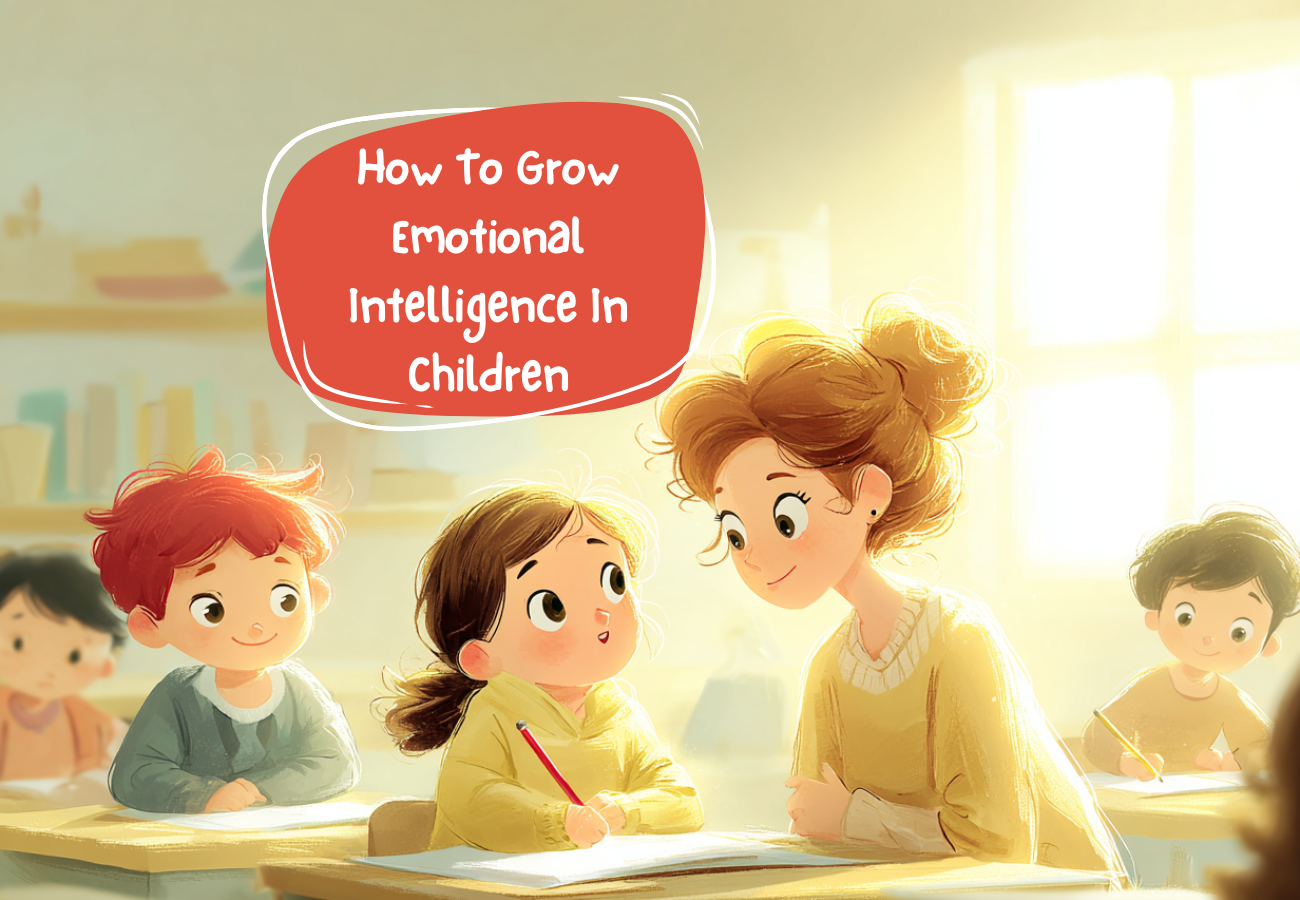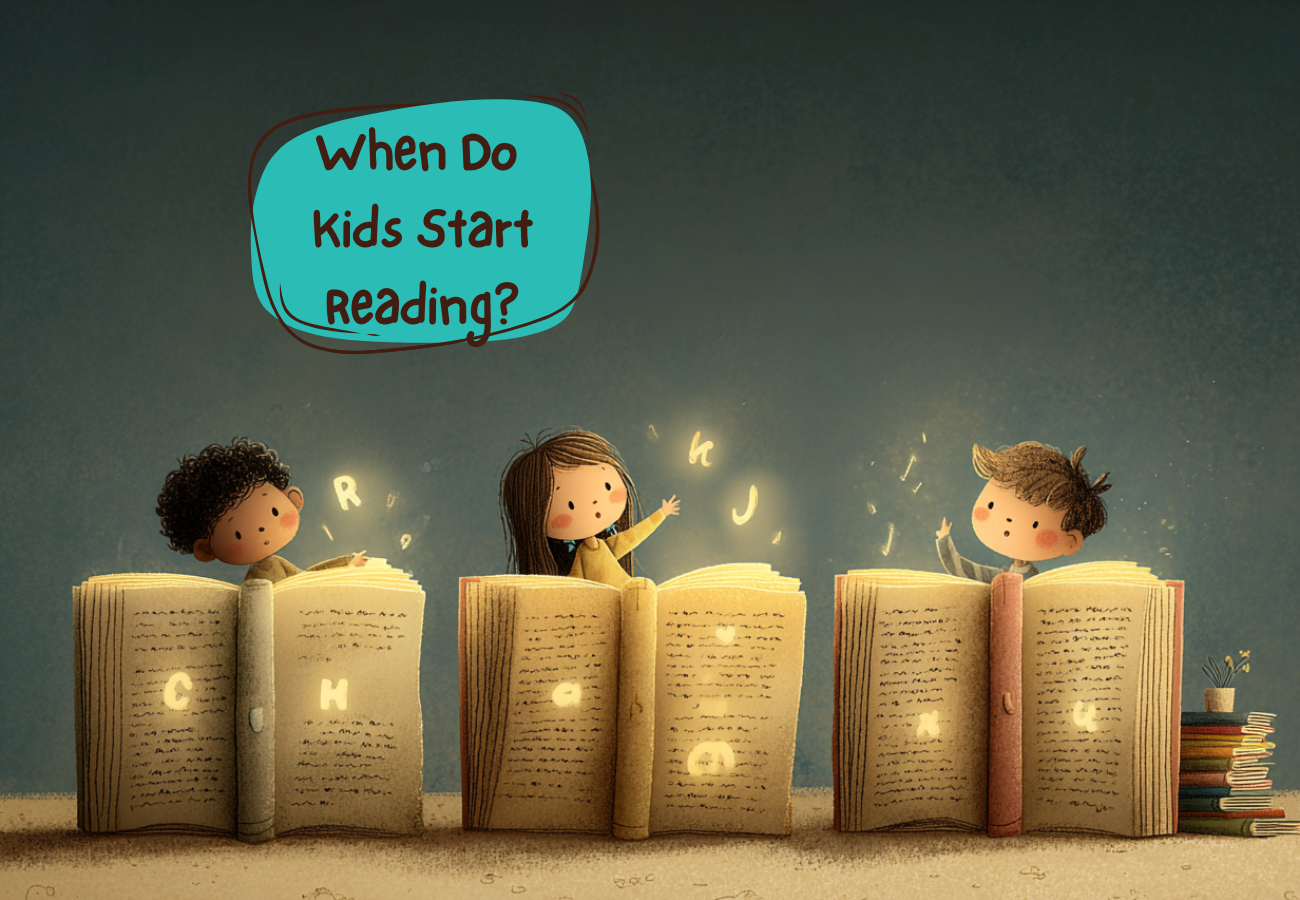Master Communication Skills for Kids Using Activities

Communication means transferring one`s ideas to other people. When we speak, we always want to reach a certain aim – to persuade, inform, or get an answer. Communication can be considered successful when we reach the aim and get the result we want. You see, words are the only tool we have. We can achieve the objective only if we know how to use them. That mastery is called communication skills.
Communication Skills for Kids: Everything You Need to Know
Kids begin interacting with the world from the very seconds of their life. First, they cry, letting their mothers know that they were just born. During the first year, they express themselves by gurgling, laughing, and crying. Later on, they learn the first words and use them to get the desired result. When the time comes to go to a kindergarten, kids have to make an effort to get what they want. For example, if they like the other child’s toy, they need to ask permission to play with it. Some kids, though, may just grab the toy. But that’s a sign that they really need to learn the basics of communication with children. Kids also need to learn communication in order to understand messages from their parents: from instructions to positive punishment.
In general, there are 2 main types of communication:
- Non-verbal (gestures, facial expression);
- Verbal (with words).
Here is a list of skills a good communication partner should have:
- speaking;
- listening;
- tolerance;
- empathizing;
- flexibility;
- insight.
And these are only basic skills. In the research Quality Matters More Than Quantity a scientist argues that effective parent-child communication favorably affects kids` academic performance. The frequency, in turn, has nothing to do with it. It’s one more proof that communication skills are a strong weapon.
Why Are Communication Skills for Children Important?
Look through job advertisements. Most employees appreciate such soft skills as teamwork, intercultural fluency, and public speaking. But what about children? Are communication skills for kids just as important? Pew Research Center questioned Americans about the skills they consider to be the most significant for kids to succeed in life. Communication skills were at the top.
They are vital not only for career perspectives but also for maintaining fulfilling relationships. Kids who know how to communicate, build families with a healthy outlook on life. They interact face-to-face easily. Also, children aren’t afraid to send positive messages, such as exchanging a smile or making eye contact. Now, while kids are young, it’s much easier to develop children’s interpersonal skills.

Communication Games for Kids
What Is That?
Take a box and cut a hole in it. Put an object inside and ask your kid to reach a hand, touch the object and describe it. It’s better to gather many players. Let everyone take a guess. Encourage them to ask questions and share their conjectures.
Show the Way
Since non-verbal communication for kids is no less important, one can nurture such skills as well. Ask your child to show you the way to one of the buildings in your city. He can use only gestures. Follow him and never forget to praise his efforts.
Turn-Taking
Ask children to sit in a circle. Each of them gets a turn to sit in the center. A kid has 20 seconds to name all the objects in a room which are red. After that, he names another color for the next participant. Also, every child has to name 2 objects that were mentioned. This game is a good chance for preschoolers to develop their listening skills.
What Is In the Picture?
Prepare some pictures and ask a child to look at them. Then he should make up a story. Let him tell it in front of other kids. This game is a good sample of learning public speaking. Meanwhile, other children practice listening skills as well as imagination.
Telephone
Gather kids together in a circle. Whisper a word into the ear of one of them. His task is to do the same to the kid next to him. The last participant should say the word out loud. Most probably, it would be misheard. This game is a kind of bonding activity too. Children will laugh all the time.
Yes or No
Gather kids together and let one of them sit in front of the others. His task is to think about an object in his mind. Then, he gives a hint by saying “I`m thinking about an animal, a person, an object which is.. “. Other children should ask yes or no questions to guess what he’s thinking about..
Body Gestures
Explain to your little one what body language is. Demonstrate the most common gestures decoding their meaning. Then ask him to show some emotions using body language only. This game increases introspection and acting skills.
Kindness Cards
Make task cards. Write on them the good deeds kids can do right this moment:
- Hug your friend;
- Smile at your neighbor
- Give 3 reasons why you respect the person to your left;
- Give a compliment to the person to your right, etc.
Сhildren take turns taking out a card and doing the task. This game teaches kids to be thankful and see the better sides of other people.
Supermarket Challenge
When shopping in a supermarket, ask your little one to tell 2 facts about the goods you pick up. For example, it’s a bottle of water, the bottle is made of glass. This simple exercise increases their horizons and is useful for improving diction.
Conclusion
Educational programs all over the world consist of activities to build communication skills. Nowadays, they are literally the key to success and individual happiness. Playing fun communication games, in its turn, makes it possible to build the basis for personal growth in the sphere of communication. One of the most useful tips here is to do your best to help kids enjoy the activities. And that’s a prerequisite for their well-being.
More articles

A Teacher And Mom’s Perspective On Growing Emotional Intelligence In Children
Have you ever asked yourself, “How do I help my child understand their feelings and handle them in a healthy way?” If yes, you’re not alone. As a teacher and a mom, I’ve heard this question from parents in school meetings, in casual chats, and even during pick-up time. The good news is, emotional intelligence […]

Core Values for Kids: Teaching Character, Responsibility & Kindness
Helping children understand who they are and what matters to them is an essential part of emotional and social development. One of the most effective ways to build character is by teaching core values early. Whether you’re a parent, teacher, or counselor, having a list of values for kids or a list of core values […]

When Do Kids Start Reading? A Parent’s Guide to Early Literacy and Chapter Books
One of the most common questions parents ask is “When do kids start reading?” Understanding reading milestones can help you support your child’s literacy journey with confidence and patience. While every child develops at their own pace, research shows predictable stages of reading growth. From recognizing letters to reading their first chapter book, this guide […]



